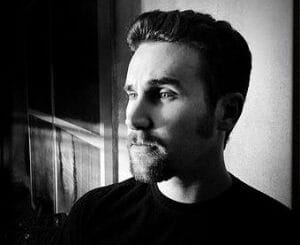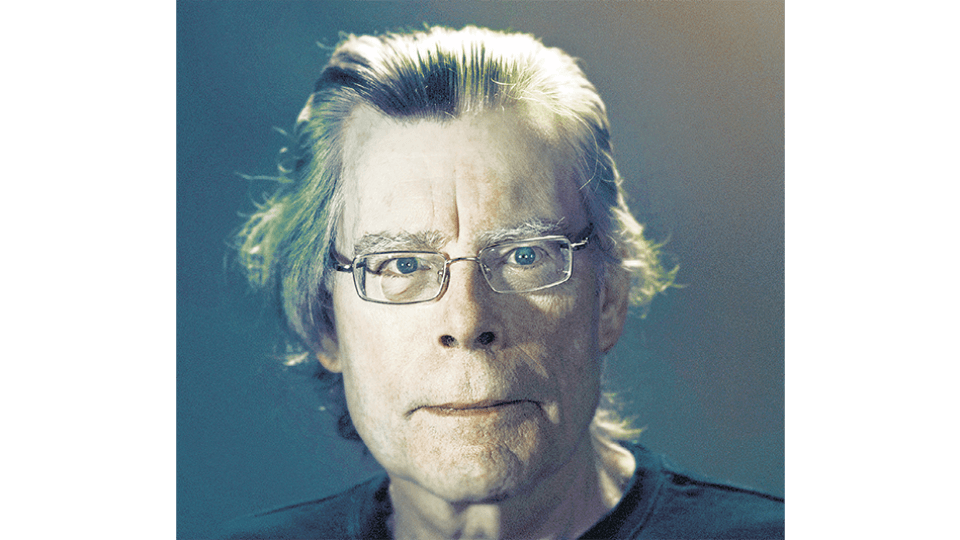Albert Hamilton

He is the filmmaker of Fletcher Dollar Baby film.
SKSM: Could you start with telling me a little bit about yourself? Who are you and what do you do?
Albert Hamilton: Hello to all Stephen King fans! My name is Albert Hamilton Armitage. I am a Latin American filmmaker and public relations specialist, with a master’s degree in screenwriting and film direction, born in the southern city of Punta Arenas, in the Magallanes and Chilean Antarctica area. I started very early in the audiovisual world, and I have made short, medium and feature-length fiction films in different video and digital formats. I currently work in public and private corporate communications, using cinematographic tools for different campaigns for television, movie theaters and networks.
SKSM: When did you know you wanted to become a filmmaker?
Albert Hamilton: At a very early age, in times of theaters with 35mm film projectors. At that time I observed the beam of light and I managed until I was able to enter the projection booth and discover how the subject worked. I must have been 7 or 8 years old. Ever since I can remember, I was fascinated by the idea of one day being in charge of a mega production, and I looked for encyclopedias, magazines, articles, etc., where behind-the-scenes appeared. All this when we didn’t even dream of the Internet, the digital world and so many changes that would come in global communications.
SKSM: When did you make Fletcher? Can you tell me a little about the production? How much did it cost? How long did it take to film it?
Albert Hamilton: Fletcher was filmed on different dates between January and March 2024. Its post-production lasted one month, its operational and equipment cost was around $10,000, it took from the signing of the contract, pre-production, filming, and post-production, a period of approximately 7 months of hard work.
SKSM: Why did you changed the original title from In the Deathroom into Fletcher?
Albert Hamilton: Considering that over the nearly four decades that the Dollar Baby show ran, the short story “In The Deathroom” was adapted several times, and after deep reflection on what criteria I would use in the adaptation, I decided it was a good idea to use the protagonist’s last name as the title for two essential reasons: the first is that it’s shorter and easier to remember, the second is that in our version, like the book, everything revolves around Fletcher, but we enhance his combat and defense skills to justify the massacre at the end, not without first presenting him as a quiet person whose most basic rights are brutally violated.
SKSM: How come you picked In the Deathroom to develop into a movie? What is it in the story that you like so much?
Albert Hamilton: At first I made the same mistake that other dollar babies made, which was to think that since it was a story with 5 basic characters and one location, it would be easier to film. Well, I was completely wrong, because Stephen King’s exquisite and detailed writing makes a few pages a human and technical challenge to try to reach the height of what was described, but this is ultimately a professional opportunity that I will always thank Mr. King for.
As for what I liked and inspired about this story, there is the fact that I have always liked characters that no one expects much from them, the helpless, weak, vulnerable, but who find strength from weakness and end up surprising us and doing the almost impossible. Fletcher is one of those extraordinary characters. On the other hand, the themes of brutal torture, kidnapping, homicides, and the violation of human rights have unfortunately been or are present in almost every country in the world. This last aspect makes Fletcher a totally universal story, and therefore has enormous potential to reach a greater number of people with its themes.
SKSM: You are the director, scriptwriter, cinematographer and the editor of the film. What were your greatest satisfactions and challenges in these roles?
Albert Hamilton: I started making films on standard resolution analog video, lighting with light bulbs inside milk cans, when I was 14 years old. The need to make films when you don’t always have the budget to pay third parties for their services, gives you the opportunity to learn, study and improve yourself in all possible functions. When the filmmaker Robert Rodriguez appeared with his work Mariachi in 1992, the only way to achieve this was by carrying out all the technical aspects himself. Thanks to his book Rebel Without a Crew I understood that I too “was born creative, and that if I also became technical, I would be unstoppable.” This is what I have been doing for more than 30 years. I like to work with big human teams, but when this is not possible, no problem. I go and simply do things myself. As for errors and failures, there is no problem either. “This is Art” I don’t seek perfection, which by the way, there is absolutely nothing in the universe that is interested in the supposed perfection that man seeks. So, I’ve never felt pressured to wear multiple hats if necessary to ensure the success of a project. I think another reason for this is that I am a fan of filmmakers, just like the aforementioned Robert Rodriguez, and John Carpenter, who used to write, produce, direct and score most of their films. Like them, what I try to do is turn disadvantages into advantages.
SKSM: Was everything planned ahead or did some things change during filming?
Albert Hamilton: Honestly, this project was characterized by adversity from the start. For example, in pre-production our candidate to play Heinz suffered a heart attack. Fortunately, I had someone else in mind for the role and it turned out to be the best Heinz we could have had. Another good friend and actor apparently didn’t have all the time available that we would have liked, and we had to make changes. We built a complete set in a basement with a lot of effort and work, and before leaving we realized that the dust and poor ventilation were going to kill the cast. So we built a new set on the third floor of the municipal theater in the city of Punta Arenas, everything was perfect, until in the middle of filming, we found out that smoking was not allowed there, and since our protagonist Escobar had to smoke and an important part of the story requires the presence of a cigarette, that was a problem. The interior scenes captured rain and strong winds on the roof of the theatre, so we had to stop just as the bells of the city’s cathedral rang. The availability of the venue and the actors’ schedules made filming difficult.
SKSM: Was there any funny or special moment when you made the movie that you would like to tell me about?
Albert Hamilton: A lot. Like when I got distracted and left an actor lying in the rain for way longer than necessary until someone remembered him and asked if he should still be lying on the ground with his bullet wound. Off-camera my lead actor used to pick on and fight with Guard Ramon and on one occasion he hit him so hard that they were almost fighting and I had to calm things down and invite them to hit each other as much as they wanted after the film was over (hahahahaha) but now they are great friends, as is all the cast and crew involved in the project.
SKSM: Are there easter eggs hidden in the film?
Albert Hamilton: More than just an Easter egg, it includes some references to the phobias that fans know about our favorite writer, such as darkness, closed spaces, sewers, and the number 13, to name a few. By the way, one day in a corner of Fletcher’s escape set, we found some huge cobwebs with a couple of spiders. Perfect! I ran to find my protagonist to lie down on the floor, in that corner, as well as having references to our favorite writer… and then… someone with a phobia of spiders had swept them up and cleaned them completely. Damn! Well, maybe I’ll get some rats for the sewer, I thought. But this, too, was not possible. (hahahaha)
SKSM: How did you find out that King sold the movie rights to some of his stories for just $1? Was it just a wild guess or did you know it before you sent him the check?
Albert Hamilton: I was searching for information on the internet and came across an old headline that mentioned selling rights for one dollar to film students, that day I started reading everything I could find on the net about the subject, and of course I couldn’t believe that I had never known about this before, I really regret it to this day.
SKSM: Now the Dollar Baby program has been disbanded, do you think that an Internet or DVD release could be posible?
Albert Hamilton: The program was disbanded in December 2023, and along with the announcement that contracts made before December of the same year would be honored, it is understood that the last contracts will close in November, if there were signatures in that month. As the rules of the dollar babies are very clear and precise, there has not yet been any news regarding what actions could be taken in the future with the productions. For now, and adhering to the rules of the contract, we hope to respect them 100% and we will not miss any opportunity to thank Mr. King for this unique opportunity, which changed our professional lives forever. Reaching a larger audience would be very positive, but time will tell us what options we will have.
SKSM: What “good or bad” reviews have you received on your film?
Albert Hamilton: At the time of this interview, we are on the verge of presenting the final product. We can say in advance that our reviews with a very small audience, but specialists in the area, have been positive, they are very surprised with this dollar baby, shot in a very mariachi style, and with a tremendously committed cast and fans of King.
SKSM: Do you plan to screen the movie at a particular festival?
Albert Hamilton: Yes, that will be the focus of this production, but we don’t have a fixed idea regarding any particular festival for now.
SKSM: Are you a Stephen King fan? If so, which are your favorite works and adaptations?
Albert Hamilton: Absolutely yes. IT is one of my favorite books. As for its adaptations, my favorites are Carrie, The Shinning, Christine, Children of the Corn and Pet Sematary. I also like modern versions for streaming, such as: Lisey´s Story directed by Chilean filmmaker Pablo Larraín, and The Outsider, the latter, in my humble opinion, with one of the best endings in recent years in King adaptations.
SKSM: Did you have any personal contact with King during the making of the movie? Has he seen it (and if so, what did he think about it)?
Albert Hamilton: It’s been a couple of months since we sent the film to Mr. King. At the moment we don’t know if he has seen it yet, but we hope to hear from him when he does. If that happens, it will be news that we will be happy to share.
SKSM: Do you have any plans for making more movies based on Stephen King’s stories? If you could pick -at least- one story to shoot, which one would it be and why?
Albert Hamilton: If the program hadn’t been disbanded, I would ask permission to adapt another film. On the other hand, if I ever got the exclusive rights to adapt a film, it would be heaven on earth. I would do my best and film Fletcher as a feature film. And if I were to dream, I would like to adapt an unpublished short story that is forgotten in a drawer or unfinished, because that would be a total and incomparable challenge.
SKSM: What are you working on nowadays?
Albert Hamilton: In the feature film script titled: “Die Goliath” a beautiful story of overcoming a man with a muscular disability and his adventures with his blind best friend. A project with a strong comedy and drama tone. Once this lovely stage of sharing the experience of the adaptation of the story “In The Deathroom” is over, I will evaluate whether to take up this work again, or if I venture into another action and mystery proposal, but there is still time to evaluate the best and most appropriate next step.
SKSM: What one thing people would be surprised to know about you?
Albert Hamilton: Rather than being surprised, I think that many readers of different ages and nationalities can identify with me because I am part of that vast majority of filmmakers who have not managed to live 100% of the love called Cinema, and therefore, it is very difficult for us to achieve and materialize our vision and art.
SKSM: Thanks for taking the time to answer my questions. Is there anything you want to say to the fans that read this interview?
Albert Hamilton: I would like to thank you for taking the time to read this interview. I want to tell you that, like life itself, what one suffers is also experienced by many in the same or similar circumstances. But, my hope is that “the joy of a handful of fans can multiply and be the joy of thousands of fans around the world.” To the fans around the world, I wish you the greatest success and happiness every day of your life.
SKSM: Would you like to add anything else?
Albert Hamilton: Thank you Mr. King for his wonderful work, for the Dollar Baby contract that gave hundreds of filmmakers around the world a new horizon, a new goal and a challenge in their professional lives. Many, many thanks for the opportunity to our new friend Oscar Garrido! Thank you very much for all your support and guidance! Thank you to my wife Karina, our beloved sons Benjamin and Thomas, and to all my friends who made this historic interview possible! I wish all the best to each and every one of you! Thank you very much!
















